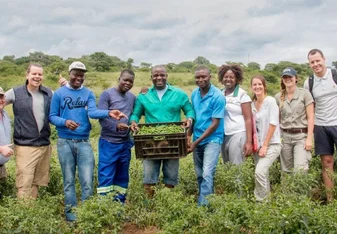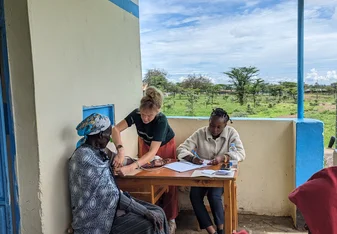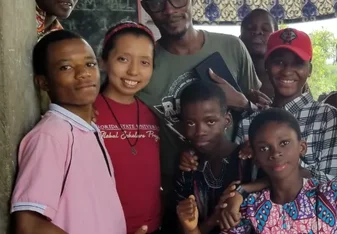Global Environmental Sustainability Internships with FSD
- Kenya
- Uganda
- India
- Argentina
- Salta
- Bolivia
- Cochabamba
- Nicaragua
About Program
Climate change affects communities around the world, Want to make a difference? Join Foundation for Sustainable Development (FSD) as an Environmental Sustainability Intern in one of FSD’s seven international sites in East Africa, India or Latin America. Interning with FSD provides a culturally immersive and professional experience where interns interact with, and learn from community members, all while helping to reach community-driven environmental goals--now, and in the time to come.
Video and Photos
Interns are matched with a host organization, learn about their priorities, and work with their host-colleagues to develop a project plan that aligns with the organization's mission and will advance efforts that are important to the community. Some interns may work on developing brand new projects, and others strengthen existing projects, but the focus remains on supporting local needs with local resources to ensure community ownership and long-term effectiveness. An equally important component of this program is that interns live with FSD host-families to foster community integration and cultural understanding.
Environmental degradation and poverty are intertwined. The poor are disproportionately affected by both climate change and environmental degradation, and poverty and environmental degradation share some root causes. This makes environmental sustainability a focus at all of FSD’s sites. FSD partners with over 50 community-based organizations engaged in environmental initiatives that respond to their community’s most pressing challenges including organic and sustainable agriculture, sustainable water management, forest regeneration, renewable energy, and biodiversity.
This position is best suited for someone who is conscious about environmental change and wants to impact the world in a positive way. Working in developing countries where resource access is limited will provide invaluable experience to interns as they improve their knowledge and develop their skill set in the field. Additionally, interns with FSD have the opportunity to put theories into practice and cultivate leadership abilities needed for a successful career in environmental issues.
Successful Candidates Should Be:
- Students studying environmental or natural sciences, engineering, environmental chemistry, or related field of study
- Motivated to work in rural areas and among underserved populations
- Self-motivated, able to work independently and with little material resources
- Culturally respectful, wants to learn more than teach
- Curious, innovative, and quick learners
- Resilient, open-minded, and hard-working
- Creative and positive problem-solver, adaptable to challenging environments
- Conversational Spanish for placements in Latin America
Examples of Past Environmental Sustainability Intern Projects:
- Assisting professors who teach classes in the sustainable management of natural resources at the local university in Bolivia (Cochabamba).
- Assisting in the preservation and sustainable use of land in Argentina (La Plata) via projects such as: cooperating with the local Department of Agriculture to recover traditional crops; supporting biodiversity and assisting local farmers.
- Cultivating and promoting water resource development and equitable distribution in India (Udaipur and Jodhpur regions).
- Creating organic gardens and educating school children about the environment in Bolivia (Cochabamba).








